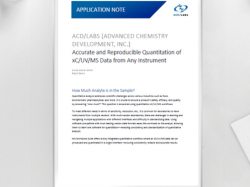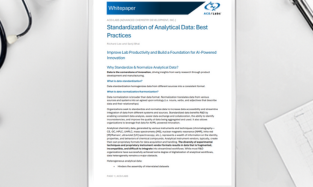Astellas reports effectiveness of potential treatment for VMS
Posted: 13 October 2022 | Izzy Wood (European Pharmaceutical Review) | No comments yet
Results from a clinical study by Astellas have demonstrated the effectiveness of fezolinetant as a treatment for menopause-associated VMS.


Astellas will present results from a Phase III clinical study evaluating fezolinetant, an investigational oral, non-hormonal compound being studied to potentially treat vasomotor symptoms (VMS) associated with menopause.
Fezolinetant is designed as a selective neurokinin 3 (NK3) receptor antagonist. The SKYLIGHT 4™ trial results demonstrate the 52-week safety and tolerability of fezolinetant 30mg and 45mg administered once daily. SKYLIGHT 4 is a 52-week double-blinded, placebo-controlled study, designed to investigate the long-term safety of fezolinetant. The results will be featured in an oral presentation at The North American Menopause Society Annual Meeting.
Safety analyses demonstrated that both endometrial hyperplasia and endometrial malignancy were within pre-specified limits for fezolinetant. Patients receiving treatment reported treatment emergent adverse events (TEAEs) were generally mild or moderate in severity; headache and COVID-19 were the most common TEAEs, with similar incidences for fezolinetant and placebo.
New Drug and Marketing Authorisation applications are under review in the US and Europe, respectively. If approved, fezolinetant would be a first-in-class, non-hormonal treatment option to reduce the frequency and severity of VMS associated with menopause.
“There is an unmet need for safe and effective nonhormonal treatment options for VMS associated with menopause, which can adversely impact daily quality of life,” said Dr Genevieve Neal-Perry, Chair, University of North Carolina (UNC) School of Medicine Department of Obstetrics and Gynecology. “The SKYLIGHT 4 study results demonstrate the long-term safety and tolerability of fezolinetant, providing further support for its potential use as a treatment for VMS.”
In addition, pooled efficacy data from SKYLIGHT 1™ and SKYLIGHT 2™ evaluating the early response to fezolinetant and its impact on sleep and treatment response, analysed by race, will be presented at the meeting. SKYLIGHT 1 and SKYLIGHT 2 enrolled over 1,000 women with moderate to severe VMS in the US, Canada and Europe. The trials were double-blinded, placebo-controlled for the first 12 weeks, followed by a 40-week treatment extension period.
“Results of the SKYLIGHT 4 study and the pooled analyses from the SKYLIGHT 1 and 2 studies provide further insights into the safety and effectiveness of fezolinetant,” said Ahsan Arozullah, M.D., M.P.H., Senior Vice President and Head of Development Therapeutic Areas, Astellas. “Through our clinical development program, we are excited to further characterize the clinical profile of fezolinetant for women who experience hot flashes as part of menopause.”
Related topics
Big Pharma, Clinical Development, Clinical Trials, Drug Development, Research & Development (R&D)
Related organisations
Related drugs
Related people
Related diseases & conditions
Menopause, VMS (vasomotor symptoms associated with menopause)









